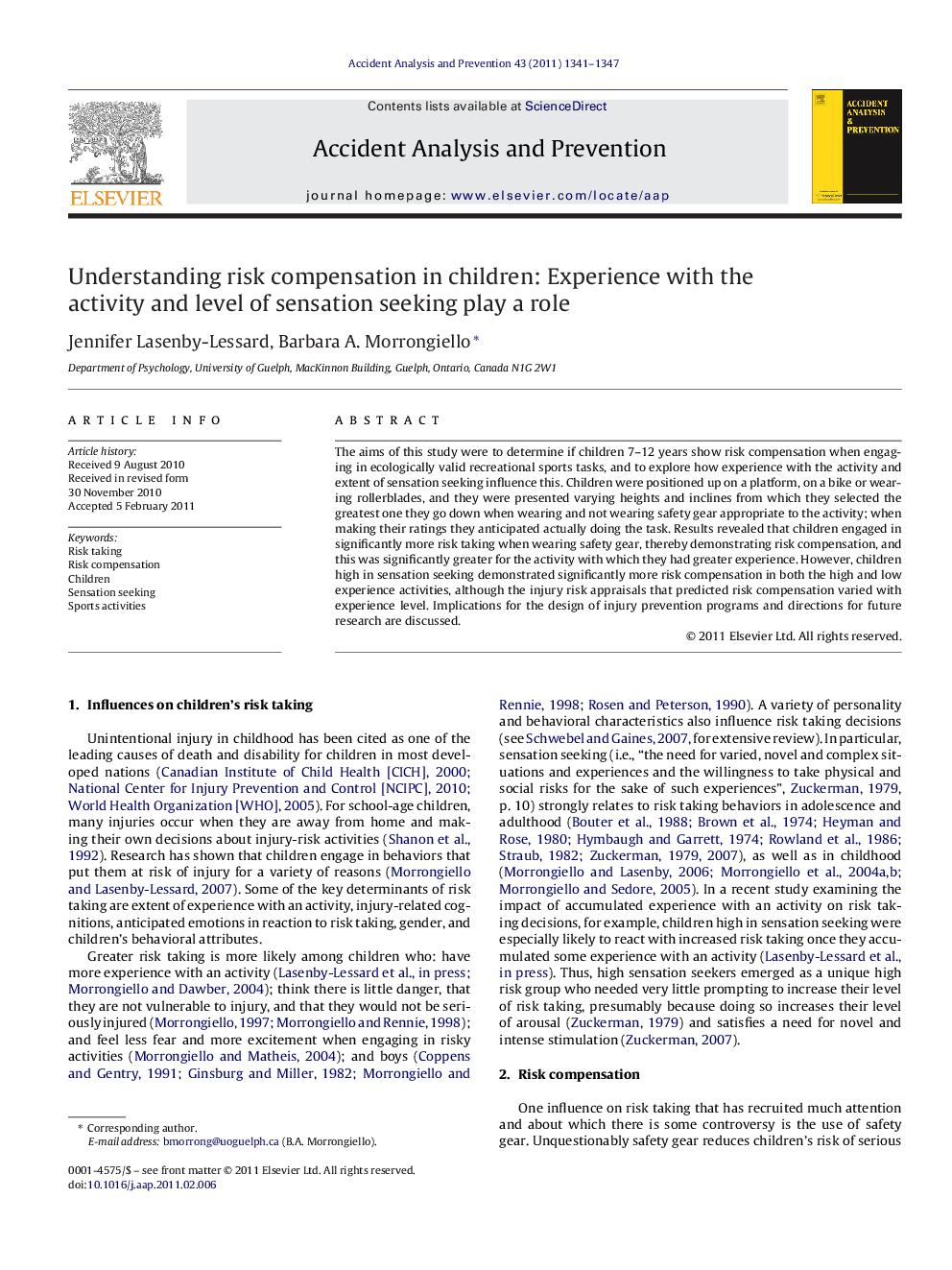| Article ID | Journal | Published Year | Pages | File Type |
|---|---|---|---|---|
| 572991 | Accident Analysis & Prevention | 2011 | 7 Pages |
The aims of this study were to determine if children 7–12 years show risk compensation when engaging in ecologically valid recreational sports tasks, and to explore how experience with the activity and extent of sensation seeking influence this. Children were positioned up on a platform, on a bike or wearing rollerblades, and they were presented varying heights and inclines from which they selected the greatest one they go down when wearing and not wearing safety gear appropriate to the activity; when making their ratings they anticipated actually doing the task. Results revealed that children engaged in significantly more risk taking when wearing safety gear, thereby demonstrating risk compensation, and this was significantly greater for the activity with which they had greater experience. However, children high in sensation seeking demonstrated significantly more risk compensation in both the high and low experience activities, although the injury risk appraisals that predicted risk compensation varied with experience level. Implications for the design of injury prevention programs and directions for future research are discussed.
► This study examined how increasing experience impacts risk compensation in children. ► Children participated in real-life recreational activities with safety gear off/on. ► Measures of the personality attribute ‘sensation seeking’ (SS) were taken. ► Use of safety gear led to more risk taking, especially for ‘high’ experience activities. ► For high SS, safety gear led to more risk taking even for low experience activities.
